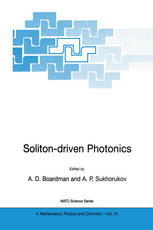

Most ebook files are in PDF format, so you can easily read them using various software such as Foxit Reader or directly on the Google Chrome browser.
Some ebook files are released by publishers in other formats such as .awz, .mobi, .epub, .fb2, etc. You may need to install specific software to read these formats on mobile/PC, such as Calibre.
Please read the tutorial at this link: https://ebookbell.com/faq
We offer FREE conversion to the popular formats you request; however, this may take some time. Therefore, right after payment, please email us, and we will try to provide the service as quickly as possible.
For some exceptional file formats or broken links (if any), please refrain from opening any disputes. Instead, email us first, and we will try to assist within a maximum of 6 hours.
EbookBell Team

0.0
0 reviewsIt is ironic that the ideas ofNewton, which described a beam of light as a stream ofparticles made it difficult for him to explain things like thin film interference. Yet these particles, called 'photons', have caused the adjective 'photonic' to gain common usage, when referring to optical phenomena. The purist might argue that only when we are confronted by the particle nature of light should we use the word photonics. Equally, the argument goes on, only when we are face-to face with an integrable system, i. e. one that possesses an infinite number of conserved quantities, should we say soliton rather than solitary wave. Scientists and engineers are pragmatic, however, and they are happy to use the word 'soliton' to describe what appears to be an excitation that is humped, multi humped, or localised long enough for some use to be made of it. The fact that such 'solitons' may stick to each other (fuse) upon collision is often something to celebrate for an application, rather than just evidence that, after all, these are not really solitons, in the classic sense. 'Soliton', therefore, is a widely used term with the qualification that we are constantly looking out for deviant behaviour that draws our attention to its solitary wave character. In the same spirit, 'photonics' is a useful generic cover-all noun, even when 'electromagnetic theory' or 'optics' would suffice.